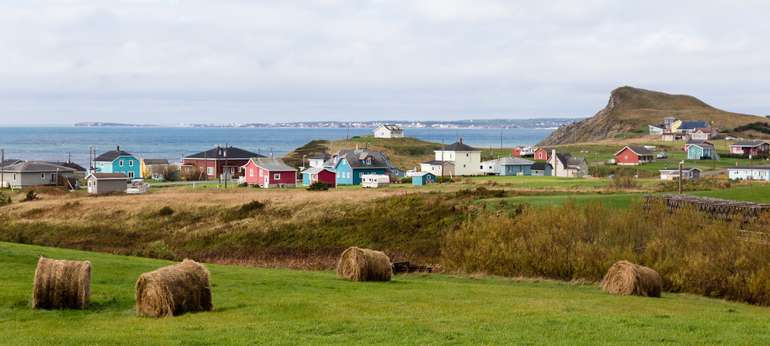Introduction
Écohabitation, working with the Communauté maritime des Îles-de-la-Madeleine, Natural Resources Canada and Hydro-Québec, is piloting the transition of two representative island homes from fossil fuels to renewables. Following an island-wide call in late 2023, the team carried out detailed inspections, then returned in October to install solar PV alongside Sunamp’s compact phase change material thermal batteries (supplied by SERL), integrated with existing hydronic systems. The goal is to decarbonize the homes by reducing their oil consumption, while avoiding any additional grid consumption.
Over the next 12 months, they will monitor performance and resident feedback to study carbon reductions, cost savings and comfort gains, offering a practical pathway away from fossil fuels and a replicable model for wider adoption across Îles-de-la-Madeleine.
The challenge
Island homes on the Îles-de-la-Madeleine have a greenhouse-gas impact about 13x higher than the Québec average (which is mainly hydroelectricity), driven by an oil-fired central plant, widespread decentralised oil tanks and generally weak insulation. The maritime climate is milder than the mainland but very windy, and although two 6.4MW wind turbines were added in 2020, energy supply remains constrained. Any retrofit method would have to cut oil, improve comfort, and avoid extra stress on the central plant in the near term.
The solution:
The project followed a “fabric first” approach, with targeted air-tightness and insulation improvements to reduce demand first.
Local renewables: Each home was then fitted with 12 bifacial PV modules (540W each) mounted on ground/shelter structures – suitable for the islands’ conditions – an 8000W inverter and two lithium batteries of 51.2V and 100AH.
Compact thermal storage:
Compact thermal storage was provided by Sunamp’s Thermino heat batteries, distributed in Quebec by SERL. By pairing with existing hydronic circuits, the heat batteries store solar energy and release it on demand for space heating and hot water. Compared with traditional hot water cylinders, the Plentigrade® PCM inside Thermino heat batteries stores up to 4x times more energy, while taking up much less space and cutting standing losses.
Grid-friendly operation: In the short term, the solution does not add load to the central plant, whereas in the longer term, aggregate thermal storage offers peak-management potential once oil tanks are retired.
This is crucial from the future demand management perspective – capturing solar PV generation and releasing heat during peak periods, which is well suited to remote and island systems.

The benefits – environmental impact and energy savings
The pilot is expected to cut oil consumption by around 600-700L per home each year – that’s a reduction of about 35%, equivalent to almost two tonnes of CO₂ emissions avoided (900Kg CO2e in House 1 and 750KgCO2e in House 2). Alongside the environmental gains, households stand to save an estimated C$400 annually on energy bills, while enjoying reliable hydronic heat and reliable hot water.
The integration of solar PV with thermal storage makes it possible to use as much as 75–89% (~7000 kWh) of the electricity generated on site, enhancing self-consumption.
The compact design of the heat batteries also results in other practical advantages – compared with traditional hot-water cylinders or oil tanks, the units take up far less space, making them easier to site in small mechanical rooms, a particularly valuable feature for island housing stock.
Together, these measures show a replicable, island-appropriate model that supports the local strategy to phase out oil while safeguarding limited grid capacity.
Watch the video for the full story (you can auto-translate the subtitles to English).
More information available on: An Energy Conversion Pilot Project in the Magdalen Islands – Écohabitation
